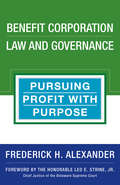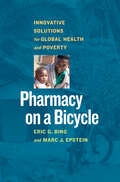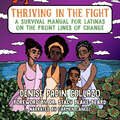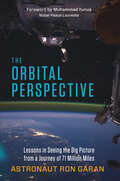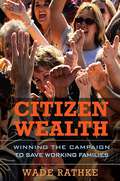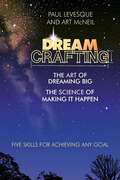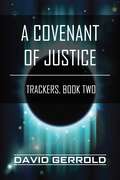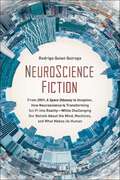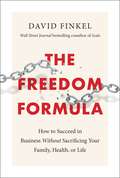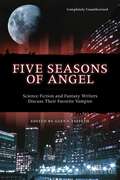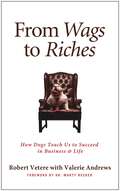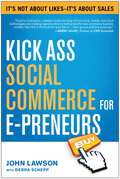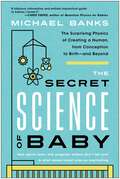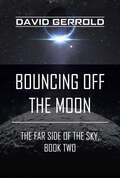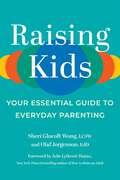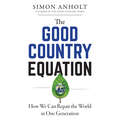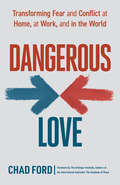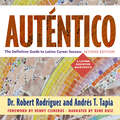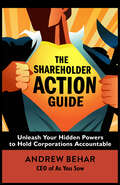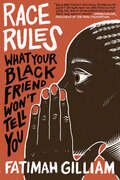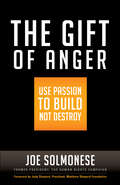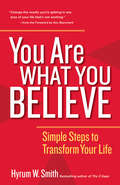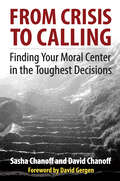- Table View
- List View
Benefit Corporation Law and Governance: Pursuing Profit with Purpose
by Frederick H. AlexanderCorporations with a ConscienceCorporations today are embedded in a system of shareholder primacy. Nonfinancial concerns—like worker well-being, environmental impact, and community health—are secondary to the imperative to maximize share price. Benefit corporation governance reorients corporations so that they work for the interests of all stakeholders, not just shareholders. This is the first authoritative guide to this new form of governance. It is an invaluable guide for legal and financial professionals, as well as interested entrepreneurs and investors who want to understand how purposeful corporate governance can be put into practice.
Pharmacy on a Bicycle: Innovative Solutions for Global Health and Poverty
by Marc J. Epstein Eric G. BingEvery four minutes, over 50 children under the age of five die. In the same four minutes, 2 mothers lose their lives in childbirth. Every year, malaria kills nearly 1.2 million people, despite the fact that it can be prevented with a mosquito net and treated for less than $1.50.Sadly, this list goes on and on. Millions are dying from diseases that we can easily and inexpensively prevent, diagnose, and treat. Why? Because even though we know exactly what people need, we just can’t get it to them. They are dying not because we can’t solve a medical problem but because we can’t solve a logistics problem. In this profoundly important book, Eric G. Bing and Marc J. Epstein lay out a solution: a new kind of bottom-up health care that is delivered at the source. We need microclinics, micropharmacies, and microentrepreneurs located in the remote, hard-to-reach communities they serve. By building a new model that “scales down” to train and incentivize all kinds of health-care providers in their own villages and towns, we can create an army of on-site professionals who can prevent tragedy at a fraction of the cost of top-down bureaucratic programs. Bing and Epstein have seen the model work, and they provide example after example of the extraordinary results it has achieved in Africa, Asia, and Latin America. This is a book about taking health care the last mile—sometimes literally—to prevent widespread, unnecessary, and easily avoided death and suffering. Pharmacy on a Bicycle shows how the same forces of innovation and entrepreneurship that work in first-world business cultures can be unleashed to save the lives of millions.
Thriving in the Fight: A Survival Manual for Latinas on the Front Lines of Change
by Denise Padín CollazoSocial justice work is more crucial than ever, but it can be physically and emotionally draining. Longtime activist Denise Collazo offers three keys to help Hispanic women keep their focus, morale, and energy high.Winner of the gold medal at the International Latino Book Awards for Best Latina-Themed Book and Best Self-Transformational Book!Doing the work of social change is hard. Waking up every day to take on the biggest challenges of our time can be overwhelming, and sometimes progress is hard to see. She understands that Latina and all women of color activists do their best work when they are thriving, not simply surviving. Denise Pad√≠n Collazo has been there. She is the first Latina, the first woman of color, and the first woman period to raise a family and stay in the work of community organizing at Faith in Action, an international progressive network of 3,000 congregations and 2 million members. Drawing on her own experiences of triumph and failure, and those of other Latina activists, Collazo lays out three keys to thriving in the movement for social change: leading into your vision, living into the fullest version of yourself, and loving past negatives that hold you back. She also warns about the three signs that you may be surrendering: wishing for a future reality to emerge, wondering where your limits are, and waiting for permission and answers to come from others. Using this framework, Collazo offers wise and compassionate advice on some of the most important leadership challenges facing Latina activists. She explains how you can integrate family and work, step out of the background and claim your leadership potential, confront anti-Blackness in your own culture, keep focused on your ultimate purpose, and raise the necessary resources to keep fighting for justice. This honest, practical, and inspirational book will help Latina activists to burn bright, not burn out.
The Orbital Perspective: Lessons in Seeing the Big Picture from a Journey of 71 Million Miles
by Ron GaranFor astronaut Ron Garan, living on the International Space Station was a powerful, transformative experience—one that he believes holds the key to solving our problems here on Earth. On space walks and through windows, Garan was struck by the stunning beauty of the Earth from space but sobered by knowing how much needed to be done to help this troubled planet. And yet on the International Space Station, Garan, a former fighter pilot, was working work side by side with Russians, who only a few years before were “the enemy.” If fifteen nationalities could collaborate on one of the most ambitious, technologically complicated undertakings in history, surely we can apply that kind of cooperation and innovation toward creating a better world. That spirit is what Garan calls the “orbital perspective.”Garan vividly conveys what it was like learning to work with a diverse group of people in an environment only a handful of human beings have ever known. But more importantly, he describes how he and others are working to apply the orbital perspective here at home, embracing new partnerships and processes to promote peace and combat hunger, thirst, poverty, and environmental destruction. This book is a call to action for each of us to care for the most important space station of all: planet Earth. You don't need to be an astronaut to have the orbital perspective. Garan's message of elevated empathy is an inspiration to all who seek a better world.
Citizen Wealth: Winning the Campaign to Save Working Families
by Wade RathkeAmerica’s safety net is torn and tattered. Income inequality continues to grow—the gap between rich and poor has expanded fivefold in the last 25 years. For millions of working families achieving basic middle class comforts has begun to seem as distant a dream as winning the lottery. What is needed, and what veteran organizer and ACORN founder Wade Rathke provides in this hard-hitting new book, is a comprehensive grassroots strategy to create what he calls citizen wealth: an enduring foundation on which working people can build a future that extends beyond paying next month’s rent.Rathke shares breakthrough strategies that have enabled ACORN and other organizations help people secure the basics of citizen wealth—a house and a decent income—offering from-the-trenches advice on mounting successful living wage campaigns, battling unscrupulous and predatory lending practices, and developing new forms of worker organizations to protect wages and benefits. The anti-poverty programs still out there can provide critical support for citizen wealth-building efforts, but they’re woefully underutilized. Rathke shows how to cut through government indifference and bureaucratic obstacles to provide those in need with access to these vital resources. But community organizations can’t do it alone. Rathke describes ACORN partnerships with HSBC Bank and H & R Block that helped these businesses see building citizen wealth as a new market opportunity—a win for them and for the people they once exploited. And he looks at other examples of strange bedfellows in the fight for citizen wealth, including Citibank, once the target of massive protests by ACORN and now, working with them, a major investor in working class communities.“We need to create a national economic and political consensus that increasing family income, wealth and assets is not `welfare’ or an entitlement ‘give-away” program but an investment in the public good and well-being.” Rathke writes. Based on forty years of hard-won experience, Wade Rathke offers a new blueprint for helping millions to achieve the American Dream.
Dreamcrafting: The Art of Dreaming Big, The Science of Making It Happen: Five Skills for Achieving Any Goal
by Paul Levesque Art McNeilMany people set out to achieve a dream-starting a business or learning to play the piano or publishing a book-but they don't succeed, and the dream fizzles away. In many cases, these people have lots of skills and expertise, such as deep knowledge of the business or career they are interested in, so why don't they succeed? Paul Levesque and Art McNeil have discovered that making a dream come true requires cultivating skills of a higher order-macroskills-that inevitably spell the difference between success and failure no matter what the specifics of a person's dreams are. These are the skills Dreamcrafting outlines in detail.
A Covenant of Justice: Trackers, Book Two
by David GerroldIn A Covenant of Justice, the sequel to Gerrold's classic space opera Under the Eye of God, The Phaestor, a genetically altered vampiric race, have set in motion their final plan for the complete enslavement of the galaxy. However, they will not go unopposed, for on numerous worlds, humans, androids, and bioforms have joined forces against their vampiric overlords. A government of vampires, dragons, and mutated humans display their galactic dominance, and while those entrusted with the wisdom of the galaxy sanction the struggle against the Phaestor, a cunning Vampire war queen, her ambitious suitor, and the fierce and invincible Dragon Lord vie for total domination. The last hope for the galaxy remains in the hands of rebels from Thoska-Roole: a band of malcontents, outnumbered and pursued, fighting for their freedom, their lives, and the future of the stars.
The Geraldo Show: A Memoir
by Geraldo RiveraDuring my half a century in public life, my image and reputation have had more ups and downs than the Cyclone roller coaster at Coney Island. I have been called savior and sinner, fool and wise man, crusader and exploiter, hothead and dope. I am routinely scorned, admired, beloved, and belittled—which one is usually based on when the viewer tuned in. Were you around for my early days as a crusading local newsman? Did you waste an evening with me inside Al Capone's empty vault? Were you watching when the bombs dropped in Afghanistan or Iraq, or did you tune in to the raucous talk show when my nose was broken in the best television studio brawl ever caught on tape? Since the attacks of September 11, 2001, and my employment by the conservative rabble-rousers of Fox News—and, more recently, with the coming of the Age of Trump—my professional life has been even more difficult to define. How could a sincerely progressive native-born Jew-Rican New Yorker like me ever work for an outfit better suited to the vibes of Orange County, California, the Dixie, Appalachia, or the Mountain West? How could I not condemn and obstruct a wrecking ball like Donald Trump? Over five decades, I have met most of the era's good and bad guys, from Ronald Reagan to Charles Manson, Fidel Castro to Yasser Arafat, Muhammad Ali to John Lennon, and Elvis Presley to Michael Jackson. Two figure heavily in this book, both longtime friends: Roger Ailes, the disgraced yet undeniably brilliant creator of Fox News; and Donald Trump, once a flamboyant playboy, billionaire businessman, and now 45th President of the United States. At the vigorous twilight of a long and largely improvised life lived in plain sight, I have little left to prove. Faced with a series of random chances, for better and worse, what I made of my life is what I made of those chances. Time has enlightened and humbled me. Sincerely, Geraldo Rivera
NeuroScience Fiction: How Neuroscience Is Transforming Sci-Fi into Reality-While Challenging Our Belie fs About the Mind, Machines, and What Makes us Human
by Rodrigo Quian QuirogaWhat if science fiction stopped being fiction? Developments in neuroscience are turning sci-fi scenarios into reality, and causing us to revisit some of the philosophical questions we have been asking ourselves for centuries. Science fiction often takes its inspiration from the latest science . . . and our oldest questions. After all, the two are inextricably linked. At a time when advances in artificial intelligence are genuinely leading us closer to a computer that thinks like a human, we can't help but wonder: What makes a person a person? Countless writers and filmmakers have created futuristic scenarios to explore this issue and others like it. But these scenarios may not be so futuristic after all. In the movie Inception, a group of conspirators implants false memories; in Until the End of the World, a mad scientist is able to read dreams; in 2001: A Space Odyssey, a supercomputer feels and thinks like a person. And in recent years, the achievements described in leading scientific journals have included some that might sound familiar: implanting memories using optogenetics, reading the mind during sleep thanks to advanced decoding algorithms, and creating a computer that uses deep neural networks to surpass the abilities of human thought. In NeuroScience Fiction, neuroscientist and author Rodrigo Quiroga reveals the futuristic present we are living in, showing how the far-out premises of 10 seminal science fiction movies are being made possible by discoveries happening right now, on the cutting edge of neuroscience. He also explores the thorny philosophical problems raised as a result, diving into Minority Report and free will, The Matrix and the illusion of reality, Blade Runner and android emotion, and more. A heady mix of science fiction, neuroscience, and philosophy, NeuroScience Fiction takes us from Vanilla Sky to neural research labs, and from Planet of the Apes to what makes us human. This is a book you'll be thinking about long after the last page—and once you've read it, you'll never watch a sci-fi blockbuster the same way again.
The Freedom Formula: How to Succeed in Business Without Sacrificing Your Family, Health, or Life
by David FinkelBuilding a successful company and career doesn't mean sacrificing your family, health, or life. You check email the moment you lift your head off the pillow in the morning. You bring work with you on vacation, sneak glances at your smart phone during family dinners, and take business calls and texts at your kid's sports games. It's as if you've been forced to make a choice between your company or your life, sacrificing time for yourself and family for the sake of career success. But it doesn't have to be that way. The most successful business leaders have learned to bust through the direct one-to-one relationship between hours worked and value created by refocusing their company, department, or team's best talent and attention on their highest value activities—generating hundreds, even thousands, of hours of value in the process. In The Freedom Formula, Wall Street Journal bestselling author and successful entrepreneur David Finkel will help you operationalize working smarter. No fluff, no theory, Finkel shares the detailed blueprint to create maximum value for your company without working nights, weekends, or while on "vacation." You'll learn: Why working longer and harder doesn't pay off (and what actually does) Why the 80-20 principle doesn't go far enough (and how to take it to its most productive extreme) How to escape the Time and Effort Economy How to structure your day and week so that you reclaim five or more hours each week in usable blocks of your best time How to leverage the five Freedom Accelerators to get your life back faster And much more! Whether you're a business owner, top executive, key manager—or aspire to be one—The Freedom Formula offers a radical new approach to structuring your time and priorities (and your team's) in order to reclaim hours of your day—and the freedom to live your life, not just your job.
Five Seasons Of Angel: Science Fiction and Fantasy Writers Discuss Their Favorite Vampire
by Glenn YeffethThe constellation of characters and themes created in Angel, the popular Buffy the Vampire Slayer spin-off, are explored in this collection of essays. A vampire author, a sex expert, a TV critic, a science fiction novelist, and Buffy writer Nancy Holder provide essays examining the different issues relating to the series, including Angelus as the prototypical high school bully, Angel as victim, Wesley's many transformations, how Spike fits into Angel, the takeover of Wolfram & Hart, and Lindsey's moral center.
From Wags to Riches: How Dogs Teach Us to Succeed in Business & Life
by Robert VetereMove over Jack Welch and Warren Buffett. The new role model for business leaders isn't a corporate superstar or one of America's wealthiest tycoons. It's the family dog. What can man's best friend teach us about building stronger, more collaborative organizations? Plenty. In From Wags to Riches, management expert Robert Vetere explores how our partnership with dogs, going back to the first human settlements, provides an intriguing model for teamwork in the corporate world. As president of The American Pet Products Association, Vetere has partnered with Purdue University researchers to explore the human-animal bond. Here, he also considers what dogs teach us about intimacy and relationships and tells why they've become the center of American family life. With interviews from CEOs who've learned important lessons from their dogs, From Wags to Riches shows how you can apply insights from dog trainers and animal behavior experts to boost creativity and build a playful environment where people feel free to innovate. Vetere demonstrates that canine-like qualities such as sharing responsibility across pack members and tuning into each other's needs and emotions by observing facial expressions and body cues can dramatically improve your personal effectiveness and ability to lead. From Wags to Riches contains practical tips and canine insights for any dog lover who aspires to become leader of his or her pack.
Kick Ass Social Commerce for E-preneurs: It's Not About Likes--It's About Sales
by John Lawson Debra ScheppIt's not about Likes—it's about sales. You're not alone. Almost all businesses are marketing online these days—everyone tweets, posts to social networks, and blogs. What you're doing now is not enough to make your business stand out. Forget what all the self-proclaimed &“social media gurus" are telling you. Being active on social media and being successful in social commerce are not the same things. Simply getting a bunch of followers or Likes doesn't cut it anymore. In Kick Ass Social Commerce for E-Preneurs, award-winning digital media strategist John Lawson gives you a straight-shooting, no-holds-barred guide to social commerce. In other words, he shows you how to make money online using social media. One of the most-respected and listened-to voices in the worlds of e-commerce and small business, Lawson stands alone because he can actually back up his words. Lawson is a multi-platform PowerSeller, whose internet businesses have rung up millions of dollars in sales. In Kick Ass Social Commerce for E-Preneurs, Lawson and bestselling e-commerce author Debra Schepp take you step-by-step through: Creating a business plan using a simple, effective template, a proven blueprint for all stages of marketing—from start-up to empire Employing the best social commerce strategy for Facebook, Twitter, LinkedIn, YouTube, and the hottest new social media sites Building a thriving e-commerce business and keeping it vibrant and growing What are you waiting for? Read this book and start kicking social commerce ass.
The Secret Science of Baby: The Surprising Physics of Creating a Human, from Conception to Birth--and Beyond
by Michael BanksWhat stops pregnant women from falling over all the time? What makes infant cries so captivating? How do sperm swim? The Secret Science of Baby answers these questions and many more, revealing the fascinating physics behind conception, birth, and babyhood. Parents and parents-to-be are bombarded with information, from what to expect to what to do (and not to do) when it happens. But what they may not realize is that from the chemistry of pregnancy tests to the vacuum physics of breastfeeding, there is fascinating science at the heart of every aspect of creating and raising a new human. Written by science journalist Michael Banks, The Secret Science of Baby won&’t tell you how to raise a perfect violin-playing, mandarin-speaking toddler, but it will shed a new light on how and why things happen as they do—from conception and pregnancy to cooing and pooing. Exploring the hidden physics behind uterine contractions, the fluid dynamics of diapers, and more, both parents and curious non-parents (who, after all, were once babies themselves) will gain a fresh perspective on the infant universe . . . and the thrilling science that makes it possible. In these pages, readers will discover: The physics of the playground and common toys—from the swing to the Slinky What it really means to "sleep like a baby" The surprising shared vocal cord features of lions and (human) infants The miracle of a baby's first breath and how surface tension provided the key to helping preemies breathe Banks draws from his own experience, interviews with scientists, and the latest research (including some involving conception inside an MRI machine) to offer a book that focuses on &“how?&” rather than &“how-to.&” The result is an illuminating and hilarious journey through the everyday science of making, baking, and bringing up baby.
Bouncing Off the Moon
by David GerroldCharles thought the Moon would be a new beginning. Now, he knows he'll be lucky just to stay alive. Having escaped both an Earth on the verge of global collapse and their squabbling parents in a "divorce" at Geosynchronous Station, a newly independent Charles "Chigger" Dingillian and his two brothers find themselves alone on the Moon with very few prospects. Worse, they are being hunted by ruthless interplanetary corporations who would stop at nothing to come in possession of a memory bar the boys smuggled on board. Totally unsure of who they can trust—if anyone—the three boys must find a way to make it on their own in unfamiliar territory. Only one thing is certain: The Moon is not a safe place to be.
Raising Kids: Your Essential Guide to Everyday Parenting
by Olaf Jorgenson Sheri Glucoft WongIn Raising Kids, family therapist and parent educator Sheri Glucoft Wong and Silicon Valley private school head Olaf Jorgenson team up to deliver a down-to-earth guide to parenting that is as encouraging as it is illuminating. With its easy-to-grasp language and tools, Raising Kids is there for you, from managing family routines, screen time, and homework, to supporting friendships, self-esteem, and resilience. You&’ll find out how being &“on your spot&” leads to fewer conflicts and replaces threats, nagging, and punishment with clear, effective messages that make sense to your kids. The authors focus on everyday parenting because how we relate to our children day-to-day forms their sense of themselves, their connection to us, and their ways of being in the world. No interaction we have with our kids is too small to strengthen our bond with them, impart our values, build their confidence, and to demonstrate communicating, relating, and caring. You&’ll learn how to be on your kids&’ side and get them on yours as you navigate daily life. Thousands of parents with toddlers through adolescents have benefited from the wisdom and reassurance that is now available in this straightforward guide. Along with offering approaches to address the challenges, Raising Kids shows you how to build on what you&’re already doing well to maximize the good times in your family life today and in the years ahead.
The Good Country Equation: How We Can Repair the World in One Generation
by Simon AnholtWhy doesn't the world work? Why, despite all the power, technology, money and knowledge that humanity has accumulated, are we are still unable to defeat global challenges like climate change, war, poverty, migration, extremism, and inequality? Simon Anholt has spent decades helping countries from Austria to Zambia to improve their international standing. Using colorful descriptions of his experiences--dining with Vladimir Putin at his country home, taking a group of Felipe Calderon's advisors on their first Mexico City subway ride, touring a beautiful new government hospital in Afghanistan that nobody would use because it was in Taliban-controlled territory--he tells how he began finding answers to that question. Ultimately, Anholt hit on the Good Country Equation, a formula for encouraging international cooperation and reinventing education for a globalized era. Anholt even offers a "selfish" argument for cooperation: he shows that it generates goodwill, which in turn translates into increased trade, foreign investment, tourism, talent attraction, and even domestic electoral success. Anholt insists we can change the way countries behave and the way people are educated in a single generation--because that's all the time we have.
Dangerous Love: Transforming Fear and Conflict at Home, at Work, and in the World
by Chad Ford“Chad Ford reminds us that humanity lies within all of us, and although conflict is everywhere in today's world, we have the tools we need to overcome obstacles and to thrive. This is a fantastic, timely book that I highly recommend."-Steve Kerr, Head Coach, Golden State WarriorsKnowing how to transform conflict is critical in both our personal and professional lives. Yet, by and large, we are terrible at it. The reason, says longtime mediator Chad Ford, is fear. When conflict comes, our instincts are to run or fight. To transform conflict, Ford says we need to turn toward the people we are in conflict with, put down our physical and emotional weapons, and really love them with the kind of love that leads us to treat others as fellow human beings, not as objects in our way. We have to open ourselves up with no guarantee that anyone on the other side will do the same. While this can feel even more dangerous than conflict itself, it allows us to see the humanity of others so clearly that their needs and desires matter to us as much as our own. Ford shows dangerous love in action through examples ranging from his work in the Middle East to a deeply moving story about reconciling with his father. He explains why we disconnect from people at the very time we need to be most connected and the predictable patterns of justification and escalation that ensue. Most importantly, he gives us a path to practice dangerous love in the conflicts that matter most to us.
Auténtico: The Definitive Guide to Latino Career Success (A Latino Executive Manifesto)
by Robert Rodriguez Andrés T. TapiaAmerica has an urgent need for Latino and Latina executives. This book identifies a path to uplift and amplify their representation in leadership.Latinos and Latinas will account for a third of our workforce by 2050-yet they make up only 5 percent of senior roles in corporate America.Dr. Robert Rodriguez and Andr√©s T. Tapia call this low percentage of Latino and Latina corporate executives today the ‚Äú5 percent Shame.‚Äù Inspired by Price M. Cobbs's seminal work on the secrets of successful Black leaders, this book seeks to understand the impact on Latinos and Latinas of the external forces of conscious and unconscious biases and of the internal forces of whether to assimilate or double down on their cultural identities in their quest to get ahead. The second edition features a new foreword by Henry Cisneros, former secretary of the Department of Housing and Urban Development, as well as updated statistics and graphs to represent how America's career landscape for Latinos has and has not changed and how to ensure Latinos can rise to their fullest potential.Using insights from in-depth interviews with twenty highly successful boomer Latino and Latina executives and focus groups with dozens of Gen X and millennial leaders, the authors have captured lessons about how these individuals chose their career paths, addressed challenges, and seized opportunities. The discussions are interpreted through the lenses of the authors' different personal experiences as Latino leaders in corporate America and synthesized as a guide for future leaders.
The Shareholder Action Guide: Unleash Your Hidden Powers to Hold Corporations Accountable
by Andrew Behar“A valuable call to action for small shareholders to change the ways big corporations do business.”—Robert Reich, former US Secretary of Labor Want to make misbehaving corporations mend their ways? You can! If you own their stock, corporations have to listen to you. Shareholder advocate Andrew Behar explains how to exercise your proxy voting rights to weigh in on corporate policies—you only need a single share of stock to do it. If you've got just $2,000 in stock, Behar shows how you can go further and file a resolution to directly address the board of directors. And even if your investments are in a workplace-sponsored 401(k) or a mutual fund, you can work with your fund manager to purge corporations from your portfolio that don't align with your values. Illustrated with inspiring stories of individuals who have gone up against corporate Goliaths and won, this book informs, inspires, and instructs investors how to unleash their power to change the world.
Race Rules: What Your Black Friend Won't Tell You
by Fatimah Gilliam“Those looking to move beyond performative allyship will find this an excellent resource.” —Publishers Weekly“Well-informed, hard-hitting advice for antiracists.” —Kirkus ReviewsWhat if there were a set of rules to educate people against race-based social faux pas that damage relationships, perpetuate racist stereotypes, and harm people of color? This book provides just that in an effort to slow the malignant domino effect of race-based ignorance in American communities and workplaces to help address the vestiges of our nation's racist past.Race Rules is an innovative, practical manual for white people of the unwritten rules relating to race, explaining the unvarnished truth about racist and offensive white behaviors. It offers a unique lens from Fatimah Gilliam, a light-skinned Black woman, and is informed by the revealing things white people say when they don't realize she's Black.Presented as a series of race rules, this book has each chapter tackling a specific topic many people of color wish white people understood. Combining history and explanations with practical advice, it goes beyond the theoretical by focusing on what's implementable. Gilliam addresses issues such as:Racial blinders and misperceptions White privilegeRacial stereotypes Everyday choices and behaviors that cause racial harmIntroducing a straightforward universal three-step framework to unlearn racism and challenge misconceptions, this book offers readers a chance to change behaviors and shift mindsets to better navigate cross-racial interactions and relationships. Through its race etiquette guidelines, it teaches white people to become action-oriented racism disruptors instead of silent, complicit supporters of white supremacy.
Citizen Capitalism: How A Universal Fund Can Provide Influence and Income To All
by Lynn Stout Tamara Belinfanti Sergio GramittoCorporations have a huge influence on the life of every citizen--this book offers a visionary but practical plan to give every citizen a say in how corporations are run while also gaining some supplemental income. It lays out a clear approach that uses the mechanisms of the private market to hold corporations accountable to the public. This would happen through the creation of what the authors call the Universal Fund, a kind of national mega fund. Every American over eighteen would be entitled to a share and would participate in directing its share voting choices. Corporations and wealthy individuals would donate stocks, bonds, cash, or other assets to the fund just like they do to other philanthropic ventures now. The fund would pay out dividends to its citizen-shareholders that would grow as the fund grows. The Universal Fund is undoubtedly a big idea, but it is also eminently practical: it uses the tools of capitalism, not government, to give all citizens a direct influence on corporate actions. It would be a major institutional investor beholden not to a small elite group of stockholders pushing for short-term gain but to everyone. The fund would reward corporations that made sure their actions didn't harm people, communities, and the environment, and it would enable them to invest in innovations that would take more than a few months to pay off. Which is another reason corporations would donate to the fund--they could be freed from the constant pressure to maximize their quarterly share price and would essentially be subsidized for doing good. The authors demonstrate that our current economic rules force corporations to be shortsighted and even destructive because for most large investors, nothing matters but share price. The Universal Fund is designed to be a powerful positive balancing force, making the world a better place and the United States a better nation.
The Gift of Anger: Use Passion to Build Not Destroy
by Joe SolmoneseUnder Joe Solmonese's leadership, the Human Rights Campaign became the model other organizations look toward to create effective social and political change. Against daunting odds, HRC was instrumental in passing landmark national legislation such as the Matthew Shepard and James Byrd, Jr., Hate Crimes Prevention Act; repealing “Don't Ask, Don't Tell”; and passing marriage equality acts in eight states. How did Solmonese and HRC do it?What Solmonese reveals in this book is that for him, the key to success was learning to harness his anger. Essentially it's just a form of energy. Channeled, it can keep you moving forward on a long journey. But uncontrolled, it can blow everything up.With this as his guiding principle, Solmonese uses stories from his work with HRC and his previous position as CEO of the powerful women's organization EMILY's List to share a series of often-surprising lessons. For example, empathize with your enemies instead of shaming them, find allies wherever you can, and ask for the doable, not the impossible (even when the “impossible” is your ultimate goal). Most striking in this book are the stories of Solmonese's ability to draw some kind of win—however small—from seeming adversaries. But at every step of the way he emphasizes the importance of managing the yin-yang tension of anger. Particularly when one is dealing with irrational and offensive attitudes, the temptation is ever present to give in to righteous indignation. While it's fine to feel it, Solmonese's advice is to always be strategic with your outrage.
You Are What You Believe: Simple Steps to Transform Your Life
by Hyrum W. SmithChange Your Beliefs, Change Your LifeWe all have times in our lives when the results of our behavior don't seem to be meeting our needs. In this new book, Hyrum Smith does two things that are invaluable to people who wish to make their lives less painful. First, he reveals, through a clear and simple model, how we get to the point where our behaviors cause these kinds of problems. Then, with a simplicity that is impressive in itself, he describes the steps we must take to identify and rectify the beliefs leading to our painful behavior. The result is a powerful process for transforming your habits and relationships and achieving lasting personal and career success.
From Crisis to Calling: Finding Your Moral Center in the Toughest Decisions
by Sasha ChanoffMaking the Hardest DecisionsAs a young aid worker, Sasha Chanoff was sent to evacuate a group of refugees from the violence-torn Congo. But when he arrived he discovered a second group. Evacuating them too could endanger the entire mission. But leaving them behind would mean their certain death. All leaders face defining moments, when values are in conflict and decisions impact lives. Why is moral courage the essential factor at such times? How do we access our own rock-bottom values, and how can we take advantage of them to make the best decisions? Through Sasha's own extraordinary story and those of eight other brave leaders from business, government, nongovernment organizations, and the military, this book reveals five principles for confronting crucial decisions and inspires all of us to use our moral core as a lodestar for leadership.
